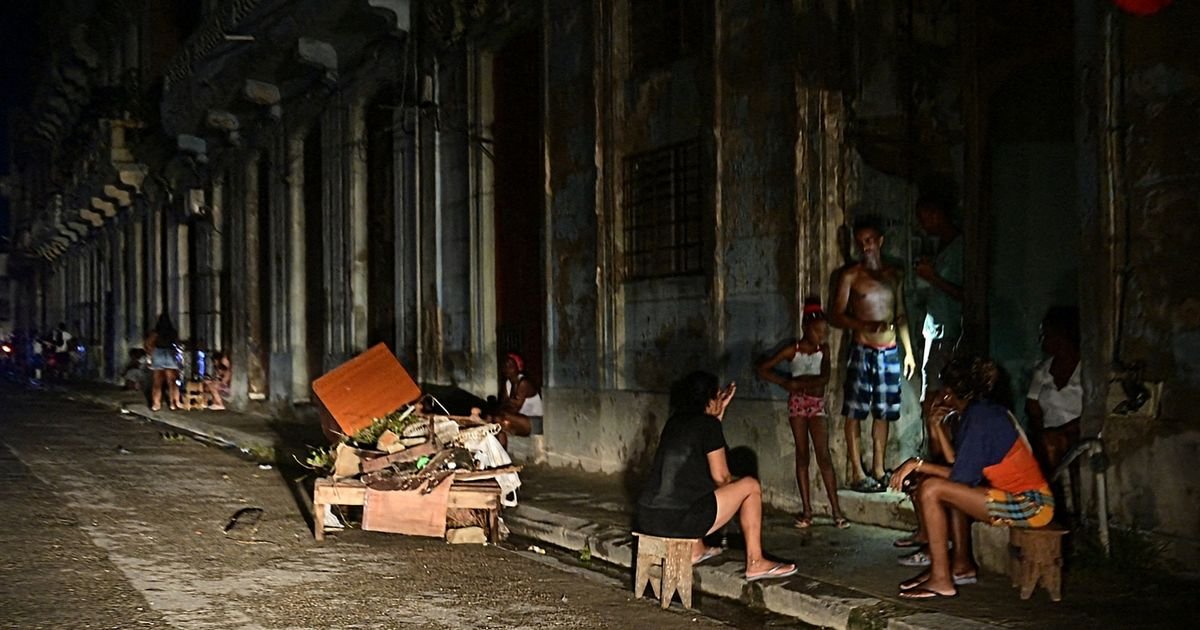HAVANA (AP) — Cuba’s electrical grid went down Friday after one of the island’s major power plants failed, a day after a massive blackout swept across the Caribbean island and with no official estimate for when service will be restored.
The Cuban energy ministry announced that the grid had gone down hours after the Antonio Guiteras thermoelectric plant had ceased operations, at about 11 a.m. local time Friday. It said state-owned power company UNE was using distributed generation to provide power to some areas and that a gas-fired thermoelectric plant was starting operations.
But as darkness started to fall, millions of Cubans remained without power.
Even in a country accustomed to frequent outages amid a deepening economic crisis, Friday’s supply collapse was unprecedented in modern times, aside from incidents involving intense hurricanes, like one in 2022. Various calls by The Associated Press seeking to clarify the extent of the blackout on Friday weren’t answered. In addition to the Antonio Guiteras plant, Cuba has several others and it wasn’t immediately clear whether or not they remained functional.
“The power went out at 8 in the morning and it is now 5 in the afternoon and there is no electricity anywhere,” said Luis González, a 73-year-old retiree in Havana.
Early Friday, Prime Minister Manuel Marrero had sought to assuage concerned citizens about the blackout Thursday evening, which was already the nation’s worst in at least two years.

ADALBERTO ROQUE via Getty Images
Officials said that 1.64 gigawatts went offline during peak hours, about half the total demand at the time. Millions were left without power, and on Friday the government implemented emergency measures to slash demand, including suspending classes, shutting down some state-owned workplaces and canceling non-essential services.
“The situation has worsened in recent days,” Marrero said in a special address on national television in the early hours of Friday. “We must be fully transparent … we have been halting economic activities to ensure energy for the population.”
During Marrero’s address, he was accompanied by Alfredo López, the chief of UNE, who said the outage Thursday stemmed from increased demand from small- and medium-sized companies and residences’ air conditioners, as well as breakdowns in old thermoelectric plants that haven’t been properly maintained and the lack of fuel to operate some facilities.
Changes to electricity rates for small- and medium-sized companies, which have proliferated since they were first authorized by the communist government in 2021, are also being considered, Marrero said.
Marrero sought to provide reassurance about the outage, citing an expected influx of fuel supply from Cuba’s state-owned oil company.
“We are devoting absolute priority to addressing and solving this highly sensitive energy contingency,” Cuba’s President Miguel Díaz-Canel wrote on X. “There will be no rest until its restoration.”
The blackout has left millions of Cubans on edge. Thursday night, residents shut their doors and windows they typically leave open at night, and candles or lanterns were visible inside their homes. By Friday night, there was no indication that a solution was imminent.
Prolonged electricity outages in the past have affected services like water supply and Yasunay Pérez, a Havana resident, said, with sarcasm, that she’s willing and able to bathe in the sea.
Support Free Journalism
Consider supporting HuffPost starting at $2 to help us provide free, quality journalism that puts people first.
Can’t afford to contribute? Support HuffPost by creating a free account and log in while you read.
Thank you for your past contribution to HuffPost. We are sincerely grateful for readers like you who help us ensure that we can keep our journalism free for everyone.
The stakes are high this year, and our 2024 coverage could use continued support. Would you consider becoming a regular HuffPost contributor?
Thank you for your past contribution to HuffPost. We are sincerely grateful for readers like you who help us ensure that we can keep our journalism free for everyone.
The stakes are high this year, and our 2024 coverage could use continued support. We hope you’ll consider contributing to HuffPost once more.
Already contributed? Log in to hide these messages.
“We can use all our survival (skills),” she said.
____

